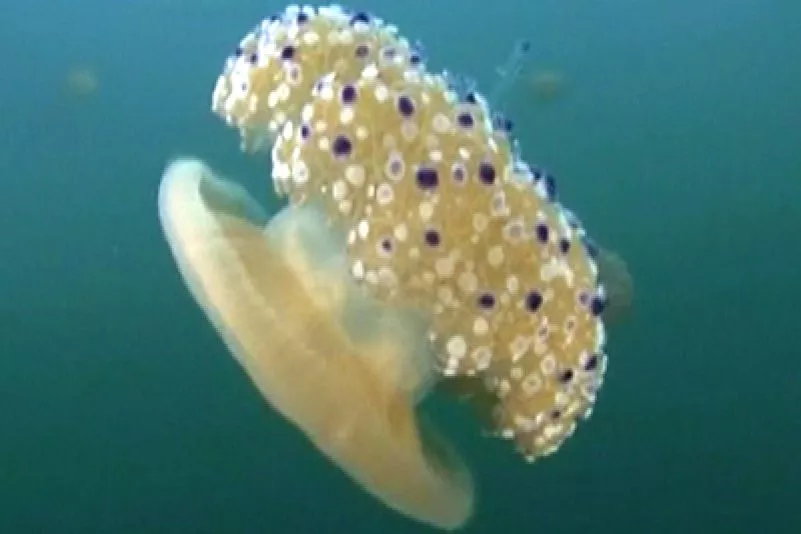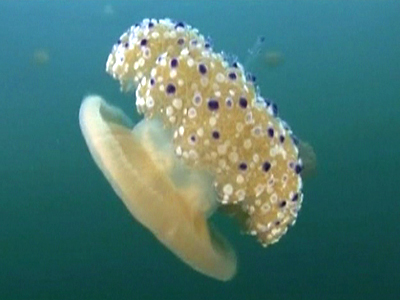NTDTV
Jellyfish Numbers Rise Along Spain’s Coastline

Foto: NTDTV
They are remarkable looking creatures.
Beautiful and delicate… but they can also be deadly.
A new study warns climate change could see the number of jellyfish swarms, heading closer to shore, rise in the coming years.
Which would be bad news for tourism at some of the world’s most popular holiday destinations.
Oceana research found concentrations of Pelagia Noctiluca, commonly known as Mauve stinger, along the Spanish coast.
The group’s Marta Madina says the natural habitat for jellyfish is more than 20 miles from the coastline, but that’s changing.
[Marta Madina, Oceana Researcher]:
“And now they are getting closer to the coastline because there is a rise in temperature, because there is a lot of pollution which they take as food and because of a lack of fresh water, all of which have changed the oceanographic conditions of the sea.”
“And now they are getting closer to the coastline because there is a rise in temperature, because there is a lot of pollution which they take as food and because of a lack of fresh water, all of which have changed the oceanographic conditions of the sea.”
The Spanish government is so concerned, it’s offering to pay fishermen to help remove jellyfish from the sea.
It’s also making sure there are facilities at beaches to treat anyone stung by the creatures.
In the southern city of Cadiz in one exceptional week the Red Cross reported 1200 cases, more than double the average monthly figure for August, after a swarm arrived at Victoria beach.
Beach councillor Santiago Posadas says the public should not be alarmed.
[Santiago Posadas, Delegate Councillor, City of Cadiz]:
“Of course we don’t want to create alarm for the general population because this was something that was very short-lived, and now the jellyfish incidents have decreased considerably. And we hope they will decrease even more.”
“Of course we don’t want to create alarm for the general population because this was something that was very short-lived, and now the jellyfish incidents have decreased considerably. And we hope they will decrease even more.”
But some tourists are not convinced.
[Astrid, Swedish Tourist]:
“My son got burnt on a jellyfish when we were in Greece and it was really painful. So no, if I could choose another place I would rather go somewhere where they are not.”
“My son got burnt on a jellyfish when we were in Greece and it was really painful. So no, if I could choose another place I would rather go somewhere where they are not.”
[Brian, Tourist]:
“I think it is definitely a deterrent. We’ve experienced it in the past and it has put us off quite honestly.”
“I think it is definitely a deterrent. We’ve experienced it in the past and it has put us off quite honestly.”
 (NTDTV)
(NTDTV)Kommentare
Noch keine Kommentare – schreiben Sie den ersten Kommentar zu diesem Artikel.
0
Kommentare
Noch keine Kommentare – schreiben Sie den ersten Kommentar zu diesem Artikel.





